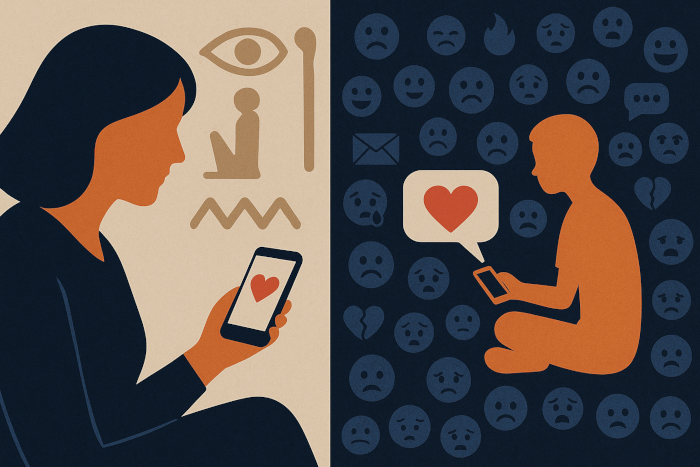MADRID, SPAIN — I’ve been watching two series that, while very different in form, are deeply connected by an essential concern: the unease about what is happening to us as a society in the face of technological growth and emotional decline. I’m talking about Adolescence, a recent British production that disarms with its simplicity and depth, and Black Mirror, the now-classic dystopian anthology that feels less like science fiction and more like a chronicle of the present.
During a short stay in Madrid—surrounded by screens, digital payments, and automation—I couldn’t help but think how many of these scenes still feel like science fiction back in Cuba. And yet, when we finally do access that world, we often do so unprepared, as if landing in a language we don't speak. Worse yet, we rarely ask whether that language is pulling us away from who we really are.
What struck me most in Adolescence was the way the characters communicate: emojis, short statuses, one-word replies. A cryptic language that excludes us as adults, pretending to say everything with a smiling face or a heart. And I say this from experience: I often use red hearts, and I’ve assigned other colors to specific causes—purple for feminist struggles, orange for anti-violence campaigns. But I’m beginning to realize that for younger generations, those same symbols mean something else, or sometimes nothing at all. They’re quick, hollow pulses replacing words that once carried weight.
And I think of hieroglyphs—ancient codes that, centuries later, we still haven’t fully deciphered. Humanity has taken a long journey to make communication a virtue, a tool for mutual understanding. Why does it now seem we’re giving up on that, celebrating languages that isolate or confuse us?
This isn’t a minor issue, especially when we talk about children and teenagers. At home, there are kids already entering that stage. Even though we try to monitor what they consume, we can’t control what’s happening around them: classmates with unrestricted mobile data, social media accounts at age 10, WhatsApp statuses that say more than any face-to-face conversation.
Are they ready for this? Are we?
I recently came across an example that’s stuck with me: an experiment with drivers, where one group used digital maps and the other, traditional paper maps.
The result? Those who always relied on technology gradually lost their sense of direction. Handing over to a device what we once did with our body, mind, and instincts weakens us instead of setting us free. And that doesn’t mean rejecting technology—it means not giving it total control.
In our work as journalists, for example, technological advances have been incredibly useful. Transcribing an interview used to be a long, mechanical process. Today, a software tool can do the first draft with minimal error; all that’s left is to review it while listening. That’s progress: a resource that enhances efficiency, without replacing our judgment or perspective.
What we cannot allow is for convenience to make us less human. For children to prefer the illusion of reality offered by a screen over real affection, unfiltered conversations, or playing in the street.
And for us adults to be unable to guide them—because we too are hypnotized by the glow of a phone.
Black Mirror shows the extremes: societies where “likes” determine your social status, where memory is editable, where you can’t tell if what you’re experiencing is real. But the most dangerous part isn’t what’s shown—it’s that, in some places, and in some lives, it’s already happening.
That’s why series like Adolescence deserve wider exposure. Not to scare us, but to get us thinking. Because if we don’t teach our children to use technology consciously and ethically, someone else will—and not always with good intentions.
We still have time to choose. To talk more. To listen. To use words instead of icons when what we feel can’t fit inside a smiling emoji. Because not everything can—or should—be said with an emoji.
Translated by Linet Acuña Quilez



